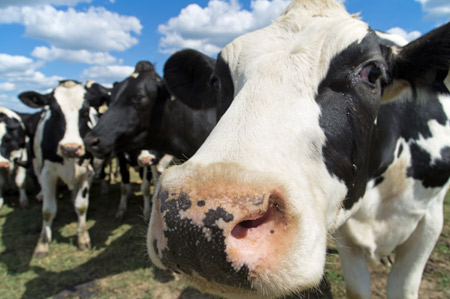Quest to dodge milk price falls drives, some, farm prices higher
Category: Dairy
 (Reuters) – Dairy farm prices in New Zealand joined commodity values in retreating – despite some “extraordinary sales” for farms offering contracts with a minor dairy with a history of paying more for its milk.
(Reuters) – Dairy farm prices in New Zealand joined commodity values in retreating – despite some “extraordinary sales” for farms offering contracts with a minor dairy with a history of paying more for its milk.
Prices of dairy farms in the top milk-exporting country, which surprised many observers by rising strongly in data revealed last month, lost nearly all that ground in the September-to-November period, falling 6.0% from the average in the August-to-October period, the Real Estate Institute of New Zealand said.
The decline came despite some “exceptionally strong dairy farm sales” in the Waikato region of North Island, where “record prices have been paid for Tatua supply properties”, Reinz said.
Milk price gap
Tatua, one of New Zealand’s few remaining independent dairy processors has, thanks to a focus on specialty products, a record for higher milk payouts than Fonterra, which processes nearly 90% of domestic milk output.
Tatua is currently estimating its 2014-15 milk payout at NZS$6.50 per kilogramme of milk solids, compared with a Fonterra forecast of NZ$4.70, an eight-year low, for its own offer.
Land agency Bayleys has reported selling for NZ$7.56m a 69-hectare Waikato dairy farm, with 220 cows and producing 84,000 kilogrammes of milk solids a year – with the property sold to a neighbour with a Tatua supply contract.
However, some strong prices have been paid for some properties supplying Fonterra too.
Bayleys, which believes the Waikato sale was the region’s first to achieve more than NZ$100,000 per hectare, has attributed the strong demand in part to a wish by producers to buy extra land to achieve economies of scale, and offset the impact of weaker milk prices.
‘Constraining factor’
Reinz also reported a “solid” market for dairy farms in Taranaki, in the west of North Island, and “strong” interest in Canterbury, in South Island.
However, “uncertainty regarding the [milk] payout for next season is a constraining factor” in the Northland dairy market, the institute said.
And in the New Zealand farm market in general, the gap is widening between higher and lower quality properties.
“The consistent pattern around the country is that second tier properties are struggling to attract meaningful attention,” said Brain Peacocke, Reinz rural spokesman.




